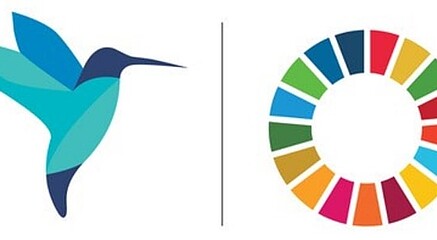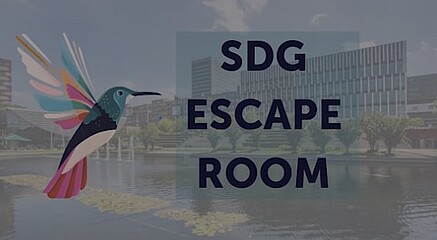RSM’s Series on Positive Change was launched with the aim of informing managers about trends we consider to be important in the future, and about opportunities for business to contribute to positive change. They are free to download.
The publications echo RSM’s mission to be a force for positive change in the world. It is our conviction that business can and should play an instrumental role in addressing the world’s big challenges in order to create prosperity for all. RSM aims to educate a new generation of change agents with the knowledge, skills, values and attitudes to make a difference in the world, using as guidance the UN Sustainable Development Goals (SDGs).
Currently, we have 4 publications available for download:
- Business & The SDGs - A Framework for effective corporate involvement
- 4 returns, 3 zones, 20 years - A holistic framework for ecological restoration by people and business for next generations
- From Risk to Opportunity - A framework for sustainable finance
- Finance in Transition - Principles for a Positive Finance Future
For more information about RSM’s mission to be a force for positive change in the world and the RSM Series on Positive Change, please contact Eva Rood, Director of the Positive Change Initiative and Co-director of RSM’s Centre for Eco-transformation.
SDG MOOC
In the MOOC (massive online open course) Driving Business Towards the SDGs, you can explore the role of business in contributing to a better future for people AND the planet without giving up profits, by using the United Nation’s Sustainable Development Goals (SDGs) as a framework for addressing these massive global problems
Sustainable Finance MOOC
How can the financial sector contribute, or even speed up, businesses’ transition to long-term value creation within a sustainable economy? If it means combining financial, social and environmental values, what pathways and challenges are there for sustainable investing and lending?
RSM joined the Global Business School Network (GBSN, pictured above) in 2020. Read our profile and our institutional contributions to the platform here. Below are research networks that RSM faculty, researchers, and doctoral students are encouraged to become members of.
Alliance for Research on Corporate Sustainability (ARCS)
ARCS serves as a vehicle for advancing rigorous academic research on corporate sustainability issues. ARCS provides data, tools and networking opportunities to researchers who are developing greater understanding of the opportunities and limits of policies and strategies to foster sustainable business. Rotterdam School of Management is one of 21 member institutions. Faculty members, doctoral students, and researchers at Rotterdam School of Management, Erasmus University are welcome to become ARCS individual members for a nominal fee. Membership is free to doctoral students.
Visit the ARCS website for more information.
Responsible Management Education
The School infuses the central themes from the UN Global Compact’s Principles for Responsible Management Education (PRME) into its curriculum, co-curricular activities, and initiatives; sensitising mindsets to benefit society, the economy and the environment from the perspective that sustainability is the foundation of business. From enrolment in the first RSM course through achieving alumni status, students benefit from the integration of classroom education and out-of-class learning experiences on these targeted topics.
Network for Business Sustainability (NBS)
Business sustainability encourages business to thrive in harmony with the economic, social and ecological systems upon which it relies. To make businesses sustainable, we must move beyond disciplinary, industry and professional silos. Through NBS, we unite a community of individuals and organizations from both research and industry, interested in using knowledge to advance business sustainability. By working together and using knowledge as the tool to bridge these silos, we can unlock a sustainable future.
Sustainable RSM is an active bridge between researchers, research centres of the School and NBS. Researchers are encouraged to be a member. Visit the NBS website for more information.


